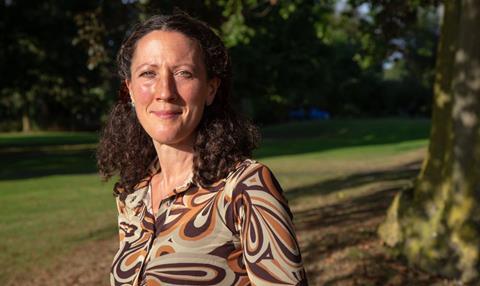UK processor ABP Food Group's sustainability programme, PRISM 2030 (Programme for the Improvement in Sustainability of (red) Meat) has completed its first year of analysis. ABP said that it has demonstrated "the farming industry's determination to reduce farm-originating greenhouse gas emissions (GHGs)."

The 350 cattle and sheep farmers involved completed their carbon footprint assessments from 2022 to the end of 2023, and have received recommendations from the specialist team of partners to support GHG-reducing changes to be made on farm.
The PRISM partners, the Andersons Centre (Andersons), Harper Adams University’s (HAU) Professor Jude Capper and experts at the carbon calculator Agrecalc, have been analysing data gathered from participating farms since late autumn 2022, identifying approaches to help them and other farmers to markedly change their carbon positions via often small changes.
Capper said: “This has been an amazing year of data collection and analysis, with so many interesting insights from farms of all types and sizes across the UK and Northern Ireland. It’s clear that there are opportunities to improve on every single farm, regardless of the baseline, and that these are linked to improving both productivity and profitability.
"It’s ultimately very simple for any farm – take a good look at your key performance indicators compared to similar farms, identify areas where you could improve, and then do it."
Capper added: “A year and 350-farms in, it’s enabled us to determine the top five recommendations for beef and lamb production - to improve pastures, reduce age at slaughter, improve livestock health and fertility, use by-product feeds and reduce fuel consumption. If these changes were to be implemented across multiple UK farms, not just those involved with PRISM 2030, the overall GHG emission reduction and farm sustainability could be significantly enhanced.”
Improving upon established sustainability
Michael Haverty, senior research consultant at Andersons said: “Marginal improvements across the farm, can, over time make a tangible difference to farm performance, both economically and environmentally.
"We have seen that even in farms which already have a low carbon footprint – there is always scope for improvement. Marginal gains can be achieved by minimising idling of machinery, utilising feed more effectively or improving bedding management.
"Such improvements demonstrate that productivity and environmental performance are often complimentary. It’s important not just to look at carbon, but also the wider sustainability picture. This will be a key focus when some of the PRISM 2030 farms go through the Global Farm Metric – a tool that also considers other key factors such as animal welfare and soil health, as well as water and air quality.”
Katie Thorley, ABP’s agricultural sustainability manager said: “Within the suckler beef sector we have seen considerable variation in carbon footprints, from 6.24 - 123.49 GHGe per kg/dwt, and similar trends within the sheep sector.
"The challenge now is to closely examine the dataset so that we can understand exactly what makes one farm different from another, and which key performance indicators or farm attributes are most important in reducing carbon footprints. Carbon is a good measure of your farm business efficiency, and our aim is to ensure the long-term sustainability of British beef and lamb.”
All farmers involved have had access to a grant - the PRISM 2030 Sustainability Fund, financed by ABP - to purchase equipment to support their recommended changes. ABP stated that farmers have invested in multi-species grass seed for pasture improvement, electric fencing equipment, livestock weigh scales, electronic livestock identification equipment and GPS variable rate and area measurement kits.
This story was originally published on a previous version of the Meat Management website and so there may be some missing images and formatting issues.















